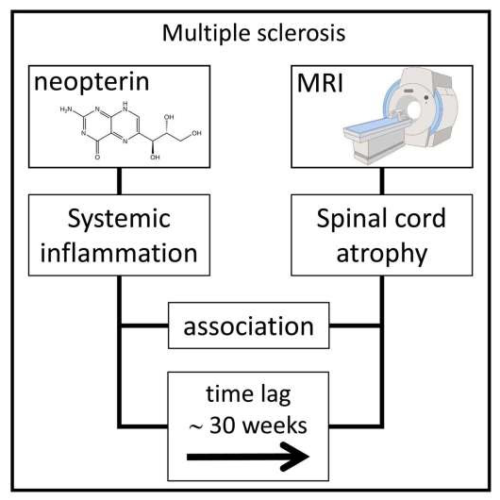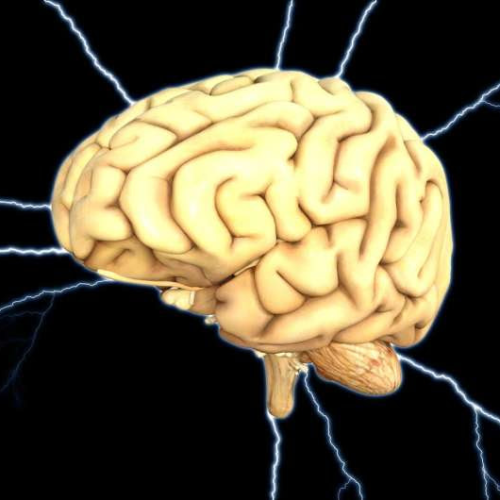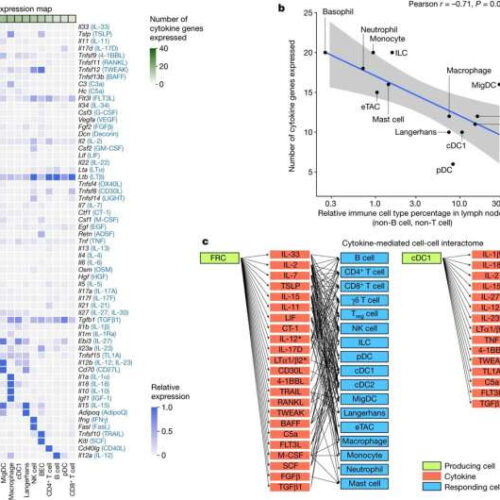by University of Gothenburg Single cell transcriptomic/AbSeq profiling of CD34+cells from human BM. Credit: Nature Communications (2025). DOI: 10.1038/s41467-025-57096-y Our blood consists of many cell types that develop through different stages from a precursor type—the blood stem cell. An international research team led by Universitätsmedizin Frankfurt and Goethe University has now investigated the developmental pathways of blood cells...
Tag: <span>immune response</span>
How a simple amino acid could shape immune response
by University of Oxford Credit: Zhi Yi Wong A study conducted by researchers at the Kennedy Institute of Rheumatology has uncovered a pivotal role of asparagine metabolism in regulating B cell homeostasis and immune response. Germinal center (GC) B cells are responsible for producing antibodies. The cells have some of the highest proliferation rates of all...
WHY ARE SOME PEOPLE MORE PRONE TO INFECTION?
An expert has answers for you about why some people are more susceptible to infections. Heidi Zapata, assistant professor of medicine (infectious diseases) at Yale School of Medicine, is fascinated by microbes—bacteria, viruses, fungi, and parasites too small to be seen with the naked eye. “That’s what led me to infectious diseases,” she says. Zapata’s...
Unexpected immune response may hold key to long-term cancer remission
September 26, 2024 by Celia Luterbacher, Ecole Polytechnique Federale de Lausanne From left to right: Co-authors Weilin Li, Tom Enbar, Li Tang, and Lucia Bonati. Credit: Alain HerzogResults from a preclinical study in mice led by EPFL, and a collaborative clinical study in patients show that the type 2 immune response—associated with parasitic infection and...
An integral T cell pathway has implications for understanding sex-based immune response
T cells from a healthy human female donor were stimulated with antibodies anti-CD3 and anti-CD28 for 48 hours. On the left are cells treated with a control and on the right are cells treated with a chemical inhibitor of NF-κB. The pink stain shows Xist RNA, a long noncoding RNA molecule that initiates and maintains...
What Does Inflammation Do to the Body?
By Marzia KhanReviewed by Danielle Ellis, B.Sc. What is inflammation?Inflammation is an immune response from the body’s immune system when there is a perceived injury or infection. When injured, inflammation causes the area to become red and swell due to a large number of white blood cells flowing into the area to fight against infection...
Multiple sclerosis progression linked to immune response outside the brain
JULY 23, 2024 by University of Southampton Credit: Brain Communications (2024). DOI: 10.1093/braincomms/fcae143New research, led by the University of Southampton and University Hospital Southampton, shows that inflammation outside the brain, such as that caused by common infections such as colds and urine infections, is linked to the progression of multiple sclerosis (MS). The Systemic Inflammation...
Immune Response May Cause Virus-Induced Neurologic Damage
Gwendolyn Rak Neurologic damage following acute viral infections may be attributed to an excessive immune response to the infection, according to a new study.Many viral infections that don’t directly infect the central nervous system (CNS) have been associated with severe neurologic disease. For these viruses, including newer viruses such as SARS-CoV-2 and Zika, the mechanism...
Immune response, not acute viral infections, responsible for neurological damage, researchers discover
by McMaster University Credit: Pixabay/CC0 Public DomainFor years, there has been a long-held belief that acute viral infections like Zika or COVID-19 are directly responsible for neurological damage, but researchers from McMaster University have now discovered that it’s the immune system’s response that is behind it. The research, published on Feb. 5, 2024, in Nature Communications,...
New ‘dictionary’ of immune responses reveals far more complexity in the immune system than previously thought
by Allessandra DiCorato, Broad Institute of MIT and Harvard Cytokine production map by cell type. Credit: Nature (2023). DOI: 10.1038/s41586-023-06816-9 The immune system can carry out many biological processes, from killing viruses to fighting cancer, thanks in large part to approximately 100 key cell-signaling proteins called cytokines, which instruct immune cells what to do. Cytokines are...
- 1
- 2




